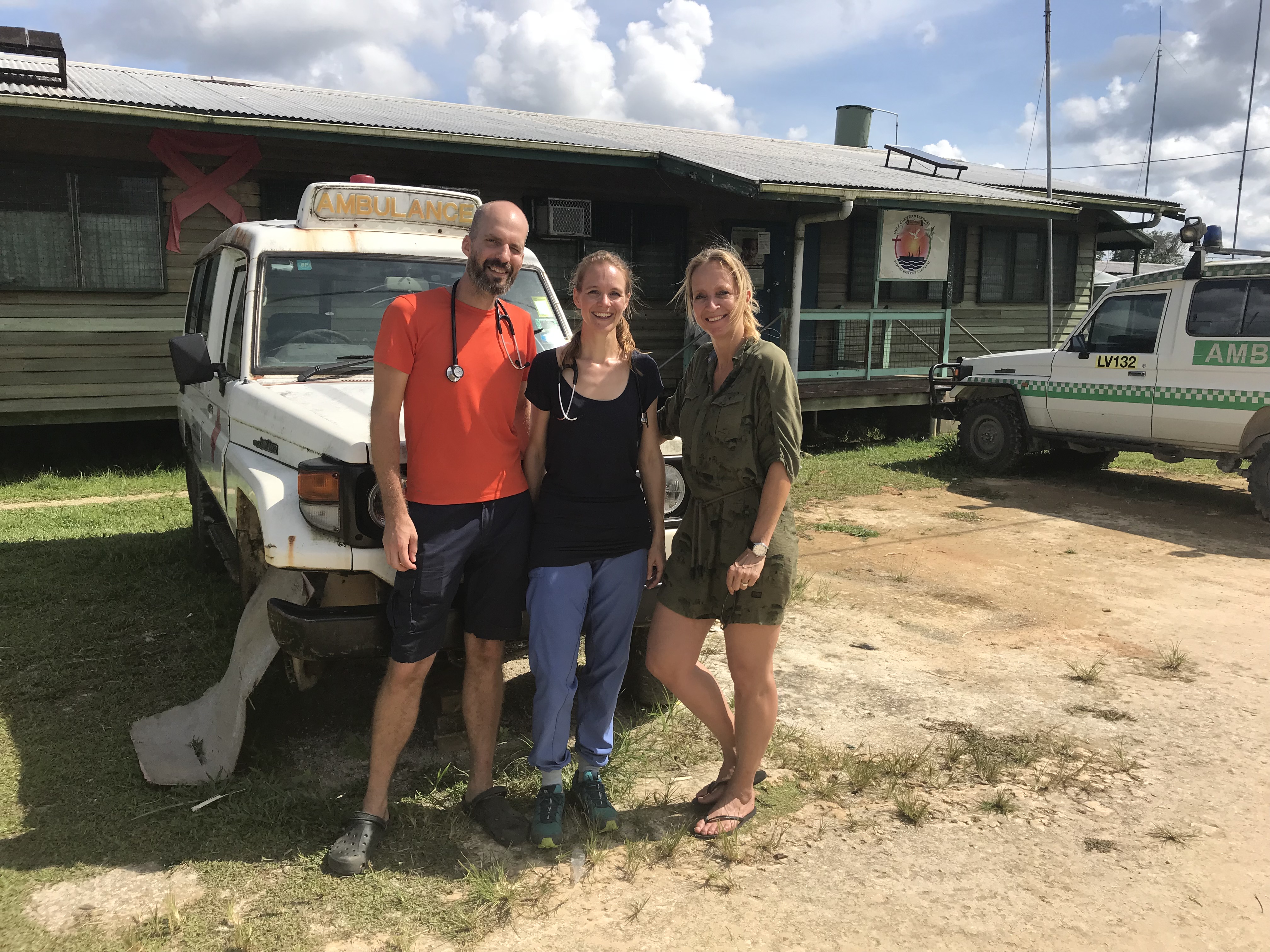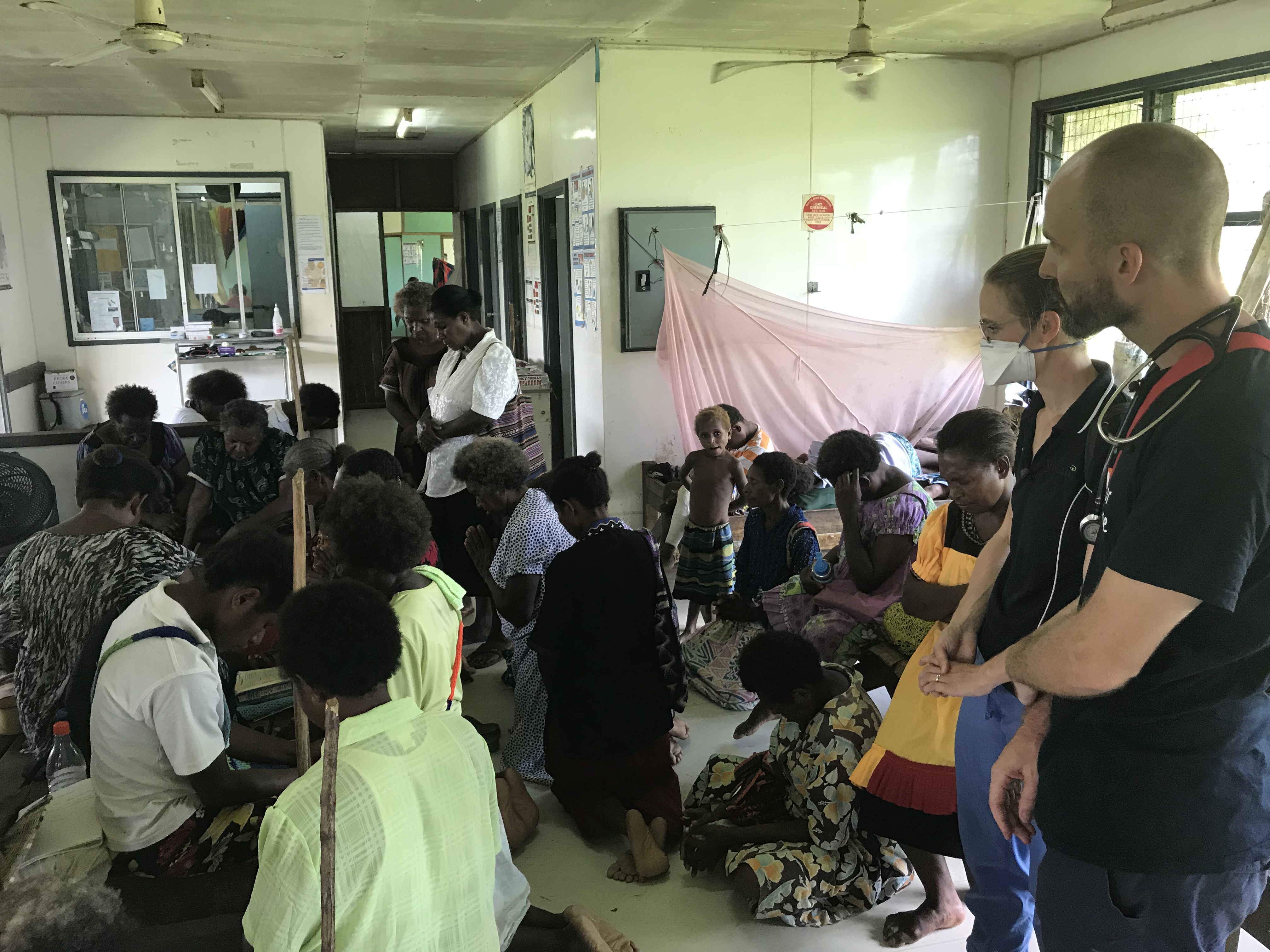Alumna in Papua New Guinea: Jorieke van der Stelt
Heroes. That’s what some people called Jorieke van der Stelt (33) and her partner Floris (34) after they appeared on an episode of the TV programme Floortje Naar het Einde van de Wereld. Doctor of tropical medicine Jorieke and GP Floris were shown working at a rural hospital in Papua New Guinea. They could be seen dealing – in primitive conditions – with a young man who had suffered brain injury in a fight. According to Jorieke, tropical medicine doctors can be labelled missionaries, adventurers or idealists. She is an idealist and adventurer. But not a hero. She points to the many kilometres she has flown. ‘My ecological footprint is much higher than that of the average Dutch person.’

It is early March. Jorieke is at home with her parents in Losser. Amazing, having a washing machine within reach. And a late freeze! Jorieke, who once skated her own Elfstedentocht, is hoping to do a few laps on natural ice.
After six months in the jungle Floris had to don his GP’s coat once more in the Netherlands, so as not to lose his accreditation. Jorieke is looking for a place to specialize as a GP. But first she wants to spend a few more months in distant lands. She has her eye on an appealing and educational project in Sierra Leone.
Jorieke studied medicine at the UG and did her specialization in tropical medicine in Almelo and Doetinchem. There are no places in Groningen. She has been doctor of tropical medicine, or doctor of international health, an official specialism, since 2012. But there is no funding for training places. The minister believes that tropical medicine is of too little benefit to the Dutch healthcare system. Hospitals, which pay for the training places themselves, are beginning to abandon ship.
Jorieke reckons she ended up spending about EUR 10,000 of her own money on training. An extra course here, a ticket there. She drew on her savings and borrowed money from her father. That’s the way it is. ‘You don’t do this programme to get rich. And I don’t need much. I don’t have a car, house or children. I don’t have expensive hobbies, except for working abroad.’
She would like EUR 200,000 though – for solar panels on the roof of Kikori Hospital. She and Floris have started crowdfunding to raise the money (www.kikori.nl). Kikori Hospital now relies on 1,200 litres of diesel per week for its generators, donated by the local oil company. Solar panels are more sustainable and reliable. EUR 200,000 will mean it can switch to solar power. In the Netherlands Jorieke is keeping a close eye on donations. Once the panels have been installed she and Floris want to go and see for themselves in Kikori.
Does she want to be a GP? Or would she rather be doctor of tropical medicine? ‘That’s what I’m trying to work out: where exactly do I belong in the world?’ In future, she may want to focus on women’s rights and birth control in relation to overpopulation. ‘We’re destroying the earth.’ In Papua New Guinea she saw a boat sail by with a million tonnes of tuna on board! ‘I still remember saying: “sorry, earth, for treating you so badly.”’
Text: Ellis Ellenbroek

| Last modified: | 19 March 2020 10.57 a.m. |
